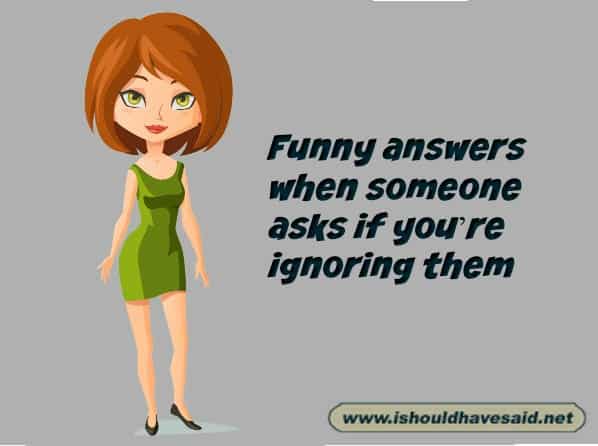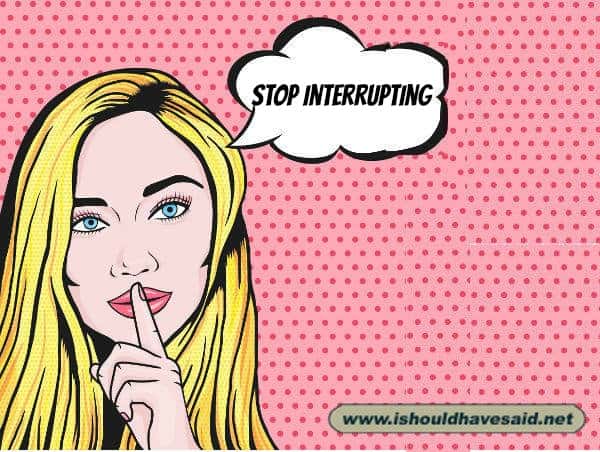
Understanding Jokes and Insults in Relationships
When your boyfriend jokingly insults you, especially in public, it can be humiliating. Humour plays an important role in relationships by creating a common language and fostering connections between partners.
The boundary between playful banter and hurting remarks can occasionally disintegrate resulting in misunderstandings and possible conflicts. To maintain a good and successful relationship, it’s critical to investigate the dynamics of jokes and insults and understand their impact on partners. Let’s explore the intricate details of humor in relationships and how to strike this delicate balance.
The Psychology Behind Joking Insults
Joking insults is a type of passive-aggressive behavior in which one person uses humor to express unfavorable thoughts toward the other person. According to Relationshippp.com, “Your partner believes he is getting ‘cool’ by insulting you. He is unaware of the emotional damage he is causing to your relationship. This conduct may indicate deeper flaws in the relationship, such as a lack of respect or unresolved conflict.
Distinguishing Between Playful Teasing and Hurtful Insults
It’s essential to differentiate between cruel comments and playful teasing. Both parties are usually at ease when playful teasing is exchanged in a lighthearted and loving manner. However, cruel insults have the intention of dehumanizing or belittling the other person, which can lead to strained feelings or relationship problems.
As stated on GaryJoyLundberg.com, “Consider if he’s using sarcasm as a form of humor. Reflect on whether his insults are influenced by societal norms or his insecurities. Recognize the role of sarcasm in modern communication. Evaluate if there’s truth behind his words.”
Understanding the difference between harmless jokes and hurtful insults requires being mindful, talking openly, and both agreeing to keep things positive. Couples who navigate this carefully can make sure that their humor strengthens their relationship instead of harming it.
Josh, known for his quick wit, often made light-hearted jokes at his girlfriend’s expense, thinking he was being funny and endearing. However, his girlfriend, Emma, started feeling increasingly humiliated and hurt by his remarks, especially when made in public. She struggled to express her feelings, not wanting to dampen Josh’s spirit, but as the jokes continued, she decided to have an honest conversation with him about how his humor was affecting her.
Communication Strategies
Effective communication plays an essential role in developing healthy relationships, resolving problems, and increasing understanding. Here are some communication skills that can help in good interactions:
Expressing Your Feelings Effectively
It is critical to express your thoughts and emotions to your partner clearly and honestly. You should avoid ambiguity and use specific instances to prove your point. Make sure to utilize “I” statements to prevent sounding accusing. In this manner, you can express your emotions without casting blame on your boyfriend.

Setting Boundaries and Expectations
Another crucial communication tactic is setting limits and expectations. Share with your boyfriend your boundaries when it comes to playful remarks. Saying “I don’t want to be insulted, but I don’t mind playful teasing” is one example of what you could say. This expresses to your partner the right and incorrect conduct.
Navigating Conflict Resolution
Any relationship will inevitably experience conflict, so learning how to handle it well is important. Try to approach the matter with an open mind and an open mind to compromise when you and your boyfriend are at odds. To make sure that all sides feel heard and understood, practice active listening. Never forget that the objective is to come up with a solution that benefits you both.
By putting these communication techniques into practice, relationships—personal and professional—can work more effectively and productively.
MORE POSTS YOU MIGHT LIKE:
- My husband always says mean things to me
- Snappy comebacks for grumpy husbands
- More comebacks you might like
Self-Reflection and Personal Growth
It can be difficult to deal with a lover who constantly makes fun of you, but it’s important to stand back and consider the circumstances. Here are some strategies for self-evaluation and learning from the experience.
Assessing Personal Sensitivities
It’s critical to pause and consider the reasons behind your emotional distress from your boyfriend’s jokes. Even when remarks are intended to be inoffensive, anxieties might occasionally cause us to become more sensitive to them. Think for a moment about your sensitivity and determine whether jokes from your partner are making you feel any better or worse.
Building Self-Confidence by standing up for yourself
Building self-confidence requires you to speak up for yourself. Speak up and let your partner know how you feel the next time he makes a joke that makes you feel bad. Setting limits and letting him know what you are and are not comfortable with is OK. You are demonstrating to him that you value your feelings and yourself by speaking up for yourself.

Having a standard for what is acceptable and what’s not
Establishing ground rules for what constitutes appropriate behavior in a partnership is vital. Have an open conversation about what makes and doesn’t make you comfortable with your partner over a meal. You may communicate to him what you expect from him and what you will put up with by establishing clear limits.
In conclusion, dealing with a guy who constantly makes fun of you requires awareness and personal development. You can learn from the situation and improve your relationship by evaluating your sensitivities, defending yourself, and establishing firm limits.
Strengthening the Relationship
It can be difficult to keep up a pleasant and healthy relationship if your boyfriend constantly makes fun of your insults. But there are methods to get through this and make your connection stronger.
Fostering Mutual Respect
Respect for one another is one of the most crucial elements of a happy relationship. Making sure that each spouse feels appreciated and respected is essential. By expressing your feelings and establishing firm boundaries, you may promote mutual respect in your partnership.
Start by discussing how you feel about your boyfriend’s jokes in an honest and open discussion. Tell him that you enjoy a good joke, but not at the expense of your emotions. Describe your desire to build a positive and respectful connection with them.
Creating a Positive Humor Culture
Any relationship needs humor, but it’s crucial to make sure that humor is constructive rather than destructive. You two can feel happier and closer if you cultivate a culture of good humor in your relationship.
Encourage constructive humor in your partnership to start. Tell amusing tales and jokes that have a pleasant and uplifting message. Refrain from making light of one another. Inform your partner politely and gently if he makes a joke that you find offensive.
Other healthy activities, like taking walks or taking up new hobbies together, are something else you might consider implementing into your relationship. Your relationship can become stronger overall if you engage in these activities that make you both feel happy and more connected.
You can strengthen your bond and build happier, healthier relationships by encouraging mutual respect and cultivating a positive humor culture. Keep in mind that it’s critical to discuss your needs and feelings with your partner openly and sincerely. A solid and loving connection that lasts for years can be developed with time and effort.
Seeking External Support
Even when it’s done in jest, dealing with a boyfriend who continuously offends you can be emotionally draining. Even if you might try to express your emotions to your partner, there are moments when you could feel unheard. In certain situations, getting outside assistance can be beneficial.
When to Consider Couples Therapy
If you’ve tried to convey your feelings to your partner and haven’t seen any results, couples therapy could be a wonderful solution. A therapist can assist you and your partner in working through communication challenges by offering techniques to help you both healthily express your feelings.
You can work jointly to find a way to interact without hurting each other by talking about how your partner’s jokes make you feel during therapy sessions. You and the therapist can work together to determine any underlying issues that might be causing the behavior.
Utilizing Support Networks
You can get support from various networks in addition to couples therapy to help you manage the emotional burden of receiving insults all the time. Discussing your predicament with friends or family might offer emotional support and a new viewpoint.
You might also think about getting assistance from a mental health professional or joining a support group. A therapist can offer you coping mechanisms and assistance in processing any unfavorable feelings you may be experiencing.
Consider that asking for help does not imply weakness. It takes courage to admit when you need help and to act to make things better.
Frequently Asked Questions:

1. How can I address my partner’s mean jokes without starting a conflict?
When dealing with your partner’s cruel jokes, it’s critical to pick a suitable moment for a private chat. Use “I” sentences to describe your feelings without assigning blame and be explicit about the situations that have disturbed you. Express your demands and recommend other modes of communication that are compatible with your emotional well-being.
Reinforce positive conduct, and if required, seek professional assistance to promote open communication and understanding in your relationship. Approaching the conversation with empathy and a desire for positive change can assist in resolving the issue without turning into a confrontation.
2. What are the signs that teasing has crossed the line into disrespect?
If teasing repeatedly creates hurt feelings, shame, or discomfort, it could indicate that boundaries are being violated. Furthermore, if the teasing includes personal attacks, criticism, or mockery, it has most definitely surpassed the level of harmless humor. Pay attention to the influence on your emotional well-being, as well as any indications of a power imbalance or a disregard for your emotions.
3. How should I react when my partner makes fun of me in front of others?
When your partner makes fun of you in front of others, you should handle the problem calmly and quietly. Consider using nonverbal indicators, such as a tiny shake of the head or a soft touch, to indicate discomfort. Later, in private, convey your emotions with “I” sentences, stating how their behaviors made you feel.
4. What can I do if my partner’s ‘jokes’ are hurting my feelings?
If your partner’s ‘jokes’ are hurting your feelings, you must communicate freely and honestly. Choose a peaceful and private place to convey your feelings with “I” statements, stressing the emotional significance of their words. Provide specific examples to assist them in understanding your point of view and initiate a discussion about limits and mutual respect.
5. How can I tell my partner that their joking remarks about harm are concerning?
Addressing your partner’s jokes about harm necessitates a thoughtful and frank discussion. Encourage open communication by striving to understand their point of view and expressing how such jokes affect your well-being. If necessary, try bringing in a neutral third person, such as a counselor, to help guide the talk and ensure that both sides are heard and addressed.
6. What steps can I take if I feel insulted by my partner’s humor?
If your partner’s sense of humor offends you, you must confront the issue openly. Suggest other ways for your partner to exhibit humor that are consistent with your emotional well-being. Addressing the issue constructively allows for greater understanding and positive progress in your relationship.
The Role of counselling and self care
I Should Have Said Media will earn a commission after clicking links on this page at no additional cost to you. Learn more.
When you are dealing with a person who jokingly insults you and you find it stressful, consider getting support from a professional. Talking to a counselor is a great way to work through a challenging situation, and help you find some strategies to work through the person’s behaviour.
Better Help is a great resource where you can talk to a counselor from the comfort of your own home.
Taking care of your own needs isn’t selfish, and you will feel better in the long run.








